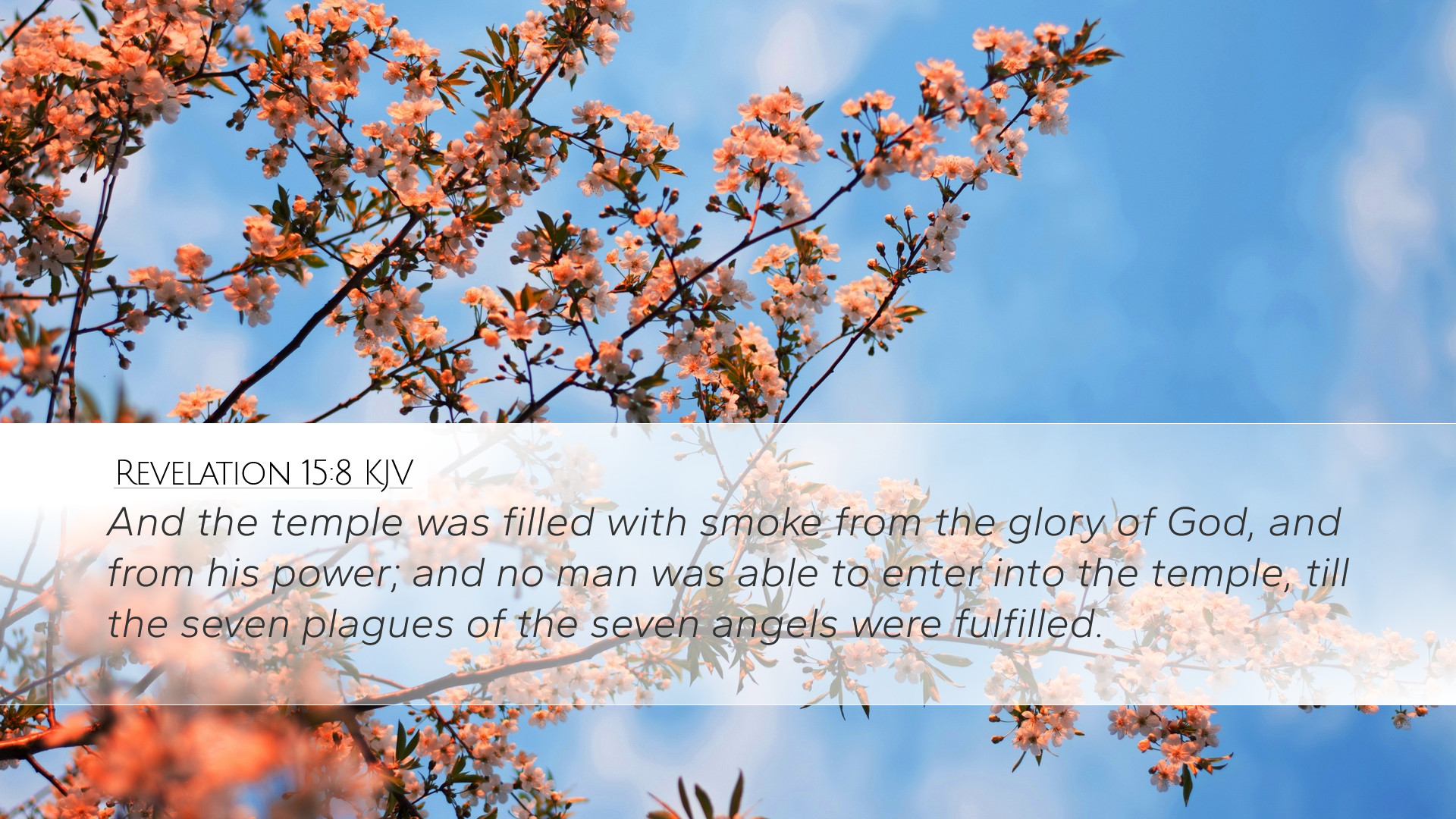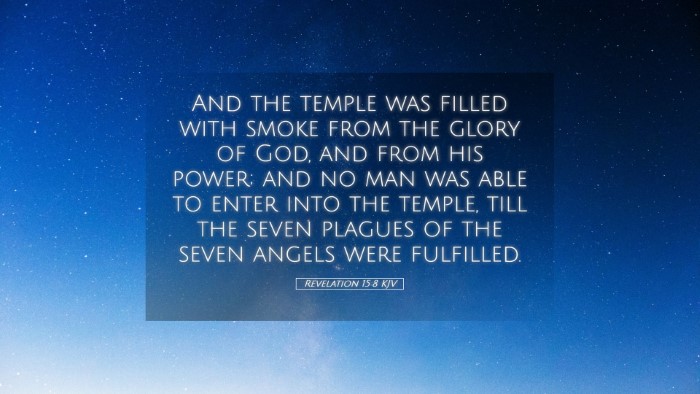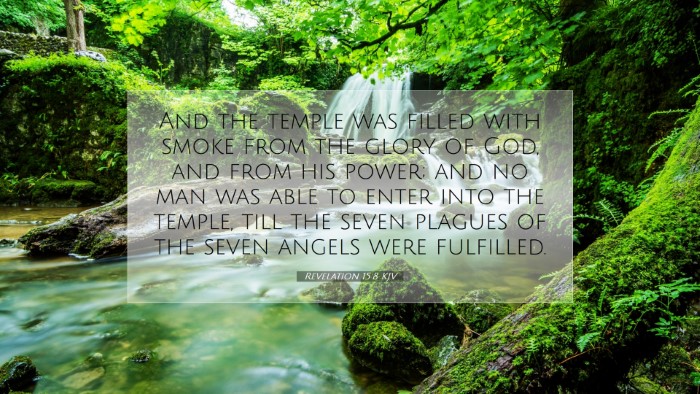Commentary on Revelation 15:8
Revelation 15:8 reads: "And the temple was filled with smoke from the glory of God, and from his power; and no man was able to enter into the temple, till the seven plagues of the seven angels were fulfilled." This verse, placed within a context of celestial and terrestrial judgment, encapsulates a profound theological reality concerning the holiness and the majesty of God, as well as the inevitability of His divine judgment. Below, we provide a synthesis of insights from prominent public domain commentators.
Theological Context
John's vision in Revelation is a culmination of prophetic themes that traverse the entire Bible. The presence of smoke in relation to the temple signifies God’s presence and His glory, reminiscent of the Old Testament depictions found in Exodus 19:18 and Isaiah 6:4. The smoke serves as a barrier, indicating the awe-inspiring holiness of God that prevents human approach when faced with judgment.
Insights from Matthew Henry
According to Matthew Henry, the smoke in the temple suggests God's overwhelming majesty. Henry notes that the manifestation of God's glory in the temple serves as a reminder of His sovereignty and the fearful nature of His judgments. He emphasizes that God, in His glory, veils Himself from human apprehension, highlighting the reverence owed to Him. Henry further explains the significance of the temple being occupied by smoke, indicating that God's judgments are complete and unassailable, and they proceed with divine authority.
Understanding the Divine Barrier
Henry states that the inability of men to enter the temple until the plagues are fulfilled signifies the seriousness of God's wrath. It metaphorically denotes separation from God due to sin and emphasizes the necessity of divine reconciliation, achievable only through Christ. Henry asserts that before God's judgments are fully executed, no one can approach Him, bolstering the concept of divine justice and the fear of the Lord as foundational in one's relationship with God.
Reflections from Albert Barnes
Albert Barnes offers a detailed exegesis focusing on the elements of the vision presented by John. Barnes interprets the temple as a symbol of God’s presence among His people, where the smoke represents the unspeakable glory and majesty of God. He observes that this vision directly correlates with the fulfillment of divine judgment upon the earth, indicating that God is both just and sovereign in administering punishment to unrepentant humanity.
Judgment and Holiness
Barnes asserts that the statement about no man being able to enter the temple illustrates an essential truth about God’s holiness; He cannot tolerate sin in His presence. This unapproachable aspect of God serves to remind believers of the necessity of holiness and the significance of Christ's atoning work, which prepares believers to enter into God’s presence. Barnes stresses the importance of understanding sin's consequences and the inevitable judgment awaiting the unrepentant, emphasizing how Revelation conveys a message of warning and hope.
Thoughts from Adam Clarke
Adam Clarke reflects on the temple's symbolism, noting its representation of God’s covenant relationship with humanity. Clarke interprets the smoke as depicting divine anger and the enormity of the plagues that were about to be unleashed. He asserts that the filling of the temple with smoke indicates a transitioning moment, separating mercy from judgment, emphasizing that God’s wrath is being prepared for revelation.
The Enclosed Temple
Clarke points out that the temple’s inaccessibility symbolizes a period of divine silence where God’s judgments overpower even the prayers and pleas of mankind. The inability to enter signifies the culmination of grace and the commencement of judgment, portraying a God who is just and has a holy vendetta against sin. He interprets this as an urgent call for repentance, emphasizing that grace is not eternal when judgment is due.
Spiritual Implications
The combination of insights from these scholars emphasizes several key spiritual implications:
- The Majesty of God: God's glory is a consuming fire that emphasizes His holiness and the unapproachability of sin in His presence.
- Divine Judgment: The passage serves as a sober reminder of God's impending judgment, urging believers to reflect on their walk with Him.
- Call to Repentance: It acts as an urgent call for all to repent and seek a right relationship with God before judgment falls.
- Role of Christ: The access to God, barred in judgment, is bridged through Christ, who satisfies divine justice and offers reconciliation.
Conclusion
Revelation 15:8 encapsulates a moment where God's holiness and majesty are overwhelmingly present; it serves as both a warning and an assurance. For pastors, students, and theologians, understanding this verse in light of divine judgment and grace provides a framework for preaching the gospel—a message of hope amid the reality of sin and its consequences.


